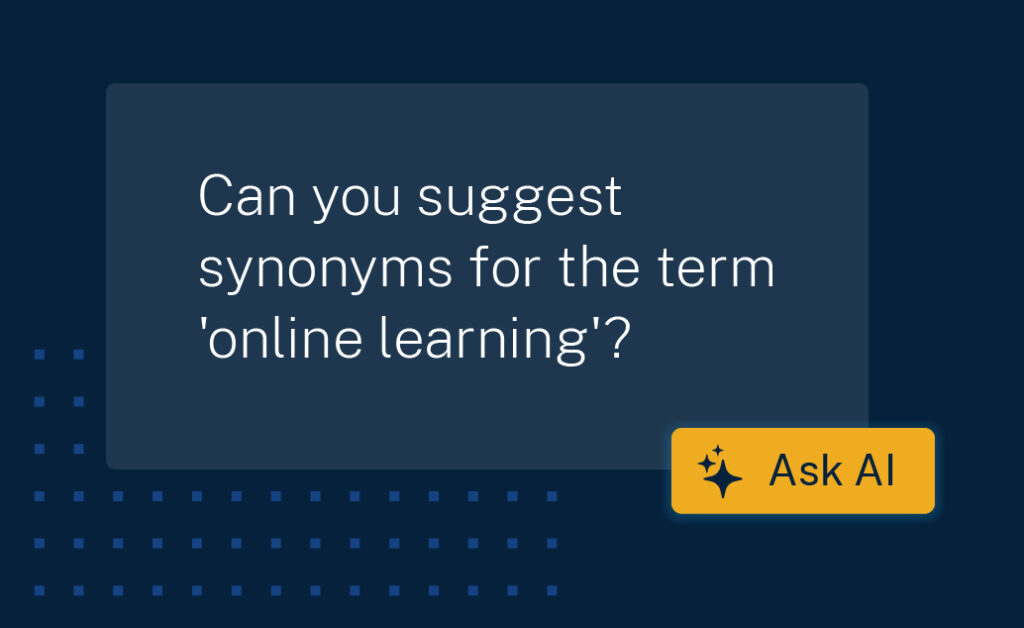
Used thoughtfully and ethically, artificial intelligence (AI) tools can enhance learning and save time during the research process. The next time you need to brainstorm, generate synonyms for a keyword search or find relevant sources, try an AI chatbot (such as ChatGPT, Perplexity or Gemini) and use a prompt like one of those suggested below.
Please remember to use AI tools responsibly and read your institution’s AI guidelines before using an AI tool for an assignment.
Brainstorming Topics
Ask your favorite AI chatbot to help you generate ideas for your topic. Here are some prompt examples:
“I need ideas for my research project on artificial intelligence in medicine. Can you suggest some potential research questions or topics?”
“I’m writing a blog post about textile design. Could you help me brainstorm industry trends?”
“How have recent developments in technology impacted early childhood education?”
Generating Synonyms
AI chatbots are excellent at providing synonyms that you can use in your keyword searches.
“Can you suggest synonyms for the term ‘online learning’?”
“Can you suggest other ways to write ‘teacher shortage’?”
Understanding Complex Topics
Ask an AI chatbot to simplify topics so that they are easier to understand.
“Can you explain a neural network in simple terms?”
“What is the difference between artificial intelligence and machine learning, and how are they applied in real-world scenarios? Please explain it to me as if I am 10 years old.”
Summarizing Articles
If you find an open access article or one that is available on the internet, you can ask the AI chatbot to summarize it for you. Please note: Articles found in the ACE Library cannot be uploaded into AI tools as it violates copyright policy.
“Can you summarize the key findings of the following article?”
“Please provide a concise summary of the main arguments presented in this research paper about renewable energy.”
Finding Sources
AI tools can generate a list of articles, papers and other sources that might be relevant to your research. AI tools such as SciSpace and LitMaps help you find additional research articles quickly. You enter a detailed research question or the DOI of an article and the tool recommends other articles on the topic as well as similar topics. Not all the articles will be fully accessible, but you can then search for those articles in the library or request them through interlibrary loan. You should always find the original source of the material before using it in your research.
Cite Your Source
If you directly quote or paraphrase information obtained from an AI tool, make sure you follow your institutional guidelines on how to cite it as a source. While the American Psychological Association (APA) has not released official guidelines on citing generative AI yet, a recent post on the APA Style Blog provides guidance on citing ChatGPT and is adaptable to other AI tools. AI chatbots are just one tool among many that you can use for your research, but they could help save you time at the beginning of the research process. Try experimenting with one of the many options available to see if adding an AI tool to your digital toolbox is right for you.
American College of Education provides you with up-to-date resources and strategies to help you make the most of your learning. Learn more about our student support here.

